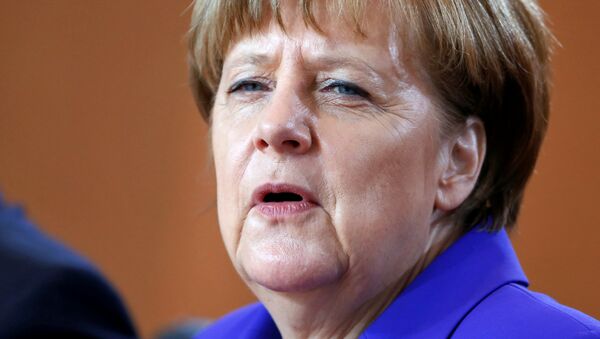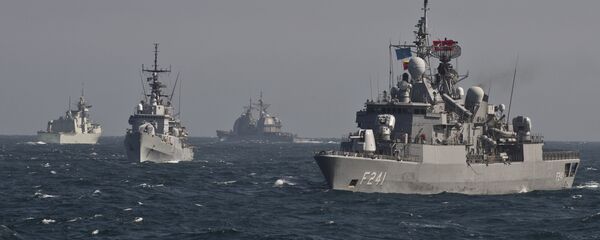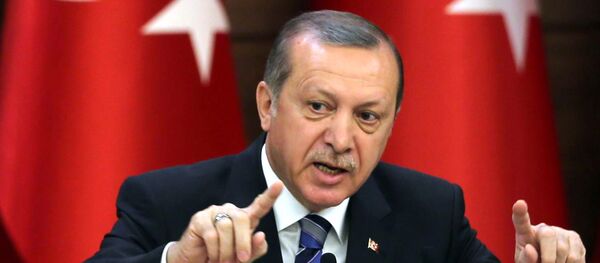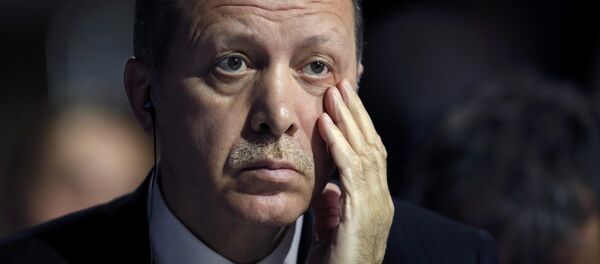The issue of visa-free travel for Turkish citizens has already become an apple of discord in the EU: on Tuesday, Hansjoerg Haber, the EU's top envoy to Turkey, known for his tough attitude towards Ankara's policies, resigned.
Remarkably, the EU Commission refused to comment on the reasons for his resignation, Nikolaj Nielsen of Euobserver.com noted.
"We as the European Union continue to work with Turkey, Turkey is a key partner," EU commission spokeswoman Maja Kocijancic said, as cited by the media outlet.
Nielsen called attention to the fact that earlier, on Monday, Preben Aamann, spokesman for EU council chief Donald Tusk, said in his tweet that the dramatic drop in asylum seekers arriving from Turkey to Greece is "hard evidence that EU strategy on migration works."
Hard evidence that EU strategy on #MigrationCrisis works. The Western Balkan route virtually closed https://t.co/HVuBio3wBE #EUCO
— Preben Aamann (@PrebenEUspox) 13 июня 2016 г.
But what is the price Europe should pay for it?
According to the Telegraph, the German Chancellery is about to swallow its pride and cave in to Recep Tayyip Erdogan's pressure. Earlier Ankara refused to meet all of the EU's requirements to obtain visa-free travel for Turkish citizens and threatened to abolish the EU-Turkish refugee agreement.
The major stumbling block has long been Ankara's controversial anti-terrorist legislation that leaves Erdogan's hands untied in cracking down on Turkish opposition and dissidents.
"Angela Merkel is ready to cave in to Turkish 'blackmail' and grant visa-free access to the Schengen zone for 75 million people, despite President Erdogan refusing to meet key EU conditions," the media outlet reported Sunday citing a leaked cable from Britain's ambassador in Berlin Sir Sebastian Wood.
Is Merkel retreating from European principles?
"I don't see any preconditions for Angela Merkel triggering a serious conflict within the European Union," Alexander Shpunt, the director of the Moscow-based Institute of Political Analysis Instruments, told the Russian newspaper Svobodnaya Pressa.
Shpunt believes that she would rather use her weight, as Germany's leader, to persuade the EU member states to soften their stance on Ankara meeting Brussels' requirements. The problem is that there is not only Turkey's anti-terrorism legislation that sparks controversy within the EU: there are many more conditions Ankara has yet to meet, Shpunt stressed.
In reality, at the root of the EU-Turkish dispute over the refugee crisis lies Ankara's de-facto "monopoly" on legalization of refugees flowing from the Middle East and Central Asia to Europe through Turkey, according to the expert.
"For example, a refugee from the [Syrian] Christian community may not get a passport and a visa in Turkey. In contrast, a fake "refugee" from some [Syria-based] terrorist organization would obtain [these documents] easily. And it is the Turkish president who would decide [who will enter the EU]," the expert underscored, adding that by striking the EU-Turkish agreement the European leadership handed the right to decide who is an "asylum seeker" and who isn't over to Turkey.
It is worth mentioning that Angela Merkel has found herself in an awkward position due to her migrant policies' failure. Undoubtedly, Ergodan is well aware of that. Therefore, he has no scruples about blackmailing Brussels and Berlin.
However, it is not as easy as it seems, Vadim Trukhachev, Professor of Foreign Regions Chair at Russian State University for Humanities, believes.
In his interview with Svobodnaya Pressa the Russian academic stressed that in order to convince the European community to reach a "compromise" with Erdogan, Merkel would have to exert considerable pressure on Germany's Bundestag as well as on the European Parliament and on the EU member states' governments.
Meanwhile, Turkish dissidents are expressing their frustration regarding the EU's unwillingness to nail Erdogan for his crackdown against the fundamental rights of freedom of speech and expression.
"Unfortunately, the leaders of the EU have not been raising their voices about this authoritarianism in Turkey because of the agreement about refugees," Turkish opposition journalist Can Dundar told the European Parliament on Tuesday, as quoted by Eurobserver.com.
"They [EU] prefer the price of our freedom for an agreement on refugees. I think this is shameful and I've said this from the very beginning," Dundar stressed.




